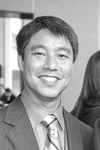
David Inoue
Among the resolutions to be debated at National Council this year during the JACL National Convention is one regarding a JACL apology to those incarcerated at Tule Lake, largely as a result of responses of “No” to questions 27 and 28 on the loyalty questionnaire. The rift in the Japanese American community has been deep and long lasting.
Hindsight is 20/20. We now know the full extent of the government’s duplicity in planning the incarceration of Japanese Americans. However, given what the JACL leadership knew at the time, we can without uncertainty say that they made good and appropriate decisions with the greater good of the community in mind.
In this time following the civil rights movement and Vietnam-era resistance, and now so often challenging the current administration’s policies that evoke parallels to our own experiences as a community, it is easy to question why JACL didn’t offer greater resistance, but that would ignore that this was a different time and very different circumstances.
We must still honor those who led the organization at the time for their leadership through one of the most challenging times in our nation’s history, not just our own community.
We can still celebrate the leadership that was provided by Mike Masaoka and others. His efforts to highlight the loyalty and patriotism of Japanese Americans was immensely successful in establishing an unimpeachable image of Japanese Americans as Americans to counter much of the racism at the time.
It is that vision of unimpeachable patriotism that has enabled JACL to achieve many successes in Washington, D.C., since World War II.
What we can also do is recognize that the decision to put forth one perspective of American patriotism ignored and marginalized those who resisted to demonstrate their loyalty to the Constitution and our country’s ideals of freedom.
While there were some who answered “No-No” because of a genuine allegiance to Japan that existed even before the war began, I don’t believe anyone on either side sees those as to whom this apology is directed.
As noted earlier, this was before the civil rights movement and Vietnam, so resistance was not a normal path of action. Our society still enforced Jim Crow laws with little resistance. Those who chose the path of resistance truly were revolutionary, and we must celebrate that.
Still, because of decisions made by JACL leadership, we did not recognize the potential for patriotism through resistance, and as a result, those who resisted were segregated and stigmatized both in the JACL and in the eyes of our government and our nation as a whole. It is for this that we can and should apologize as an organization.
Ultimately, we need to look at where the real conflict exists. The government was the one forcing these decisions on the JACL and the community that we represented, splitting us against one another.
The real conflict was not one of loyal vs. disloyal Japanese Americans, but one of Japanese Americans vs. our own government.
It is beyond time that we acknowledge the real source of conflict — our community was forced into decisions we should have never been required to make.
Somewhat ironically, redress would not have been possible without the coming together of Japanese American resistance and patriotism. The push for redress was clearly an act of resistance to the government, which forced it to acknowledge the wrong it had inflicted upon our community.
Politically, redress probably would have been impossible to achieve without the stories of Japanese American soldiers fighting for a country where many still saw them as the enemy.
Redress also highlights the capacity to apologize.
As the Japanese American Citizens League, we do not represent only the stories of Japanese Americans who served our country through their military service, but also we must represent the stories of those who chose to demonstrate their loyalty to our constitutional ideals through resistance.
What we cannot do as an organization is faithfully represent those stories without acknowledging the role that JACL did have in further disenfranchising those who resisted as a matter of conscience, adding to the pain during and after the war that the incarceration experience inflicted upon the Japanese American community and carries on today.
It is time that JACL truly and fully represents the full Japanese American story.
David Inoue is the JACL Executive Director and is based at the organization’s Washington, D.C., office.



